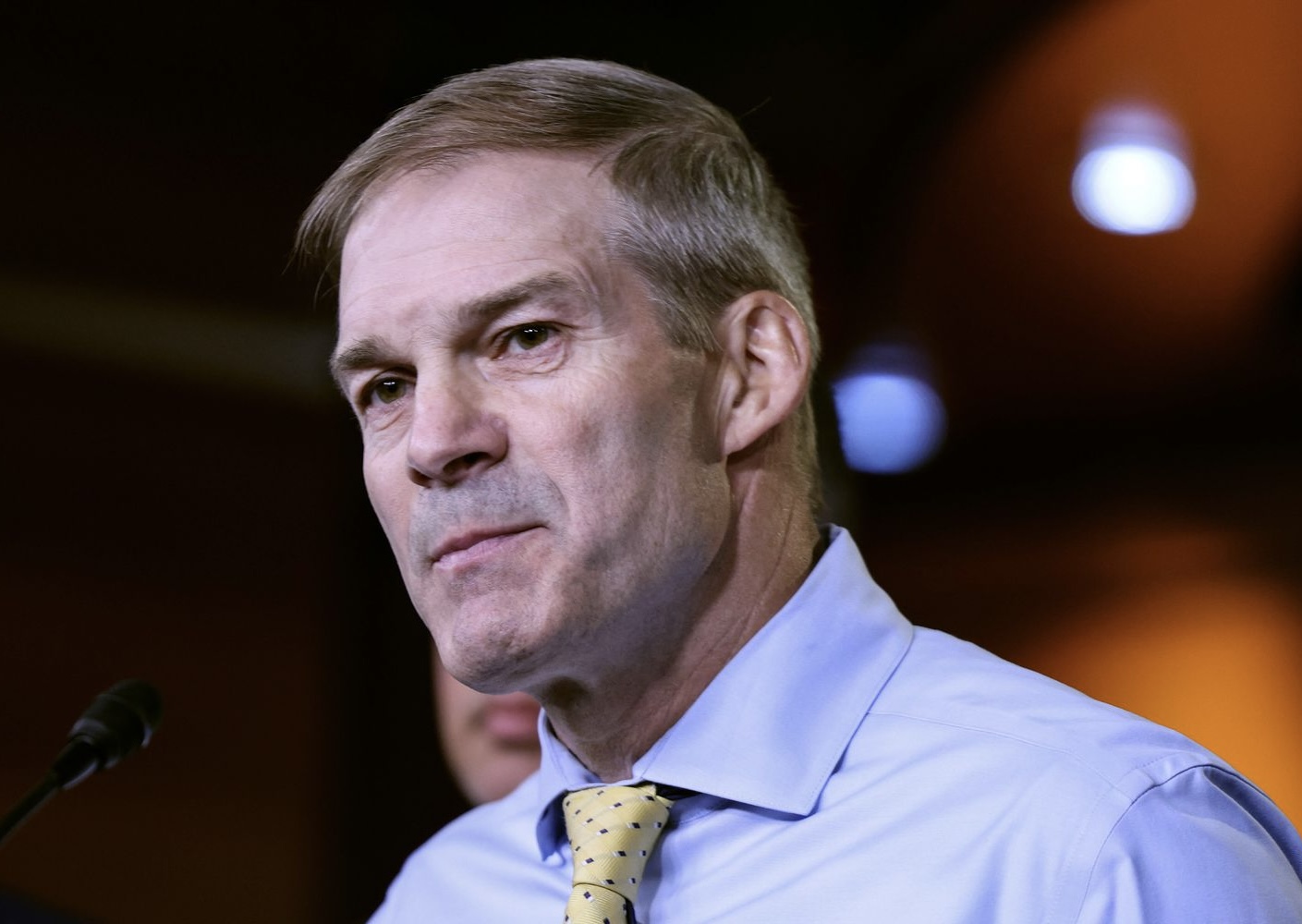Jordan Demands Probe into Pelosi’s Role in Capitol Events
Jordan Calls for Investigation Into Pelosi’s Role in Capitol Incident
Ohio Republican Representative Jim Jordan has called for a comprehensive investigation into former House Speaker Nancy Pelosi and members of the Democrat-led January 6 Committee that investigated the 2021 Capitol attack. In a brief exchange with CNN’s Manu Raju, Jordan dismissed the investigation as politically motivated and aimed at targeting former President Donald Trump. He also argued that Pelosi’s actions and her knowledge of events leading up to January 6 should be scrutinized.
During their conversation, Raju asked Jordan about the purpose of the investigation from the Republican side. Jordan responded by asserting that the focus of the Democrats’ previous efforts was solely on Trump, saying, “You know what this is about. It’s about going after President Trump. The Democrats don’t want to focus on real issues—crime in major cities, the border crisis, rising costs of essential goods like eggs, milk, lumber, airline tickets, and used cars. Instead, they prefer to concentrate on targeting Trump for a third time.”
In line with Jordan’s remarks, Georgia Republican Representative Barry Loudermilk revealed that House Speaker Mike Johnson has pledged to create a formal committee tasked with investigating the January 6 Capitol breach. This initiative fits into the broader Republican effort to continue the inquiries into the events surrounding the Capitol riot, particularly now that they have regained the majority in the House.
Loudermilk elaborated that while the committee’s structure is still being finalized, there are proposals that would give Speaker Johnson significant control over the panel’s composition and operations. He noted that the creation of the new committee follows work done by him in the previous Congress, including a report that called for an investigation into former GOP Representative Liz Cheney by the FBI. This new investigation aims to keep the focus on reassessing the narrative around January 6 and ensuring that the failures on multiple fronts are addressed.
“The original January 6 Committee, led by Adam Schiff and Liz Cheney, was entirely focused on blaming Trump,” Loudermilk said. “In reality, there were failures at multiple levels, and we intend to look into that.” Speaker Johnson has confirmed that the investigation will receive full funding, a crucial step to ensure its thoroughness and continued focus.
Beyond the January 6 inquiry, Republicans are also expanding their investigations into other politically charged issues. GOP lawmakers recently reissued subpoenas related to Special Counsel Robert Hur’s probe into President Joe Biden’s handling of classified documents. Additionally, they subpoenaed two Justice Department officials who had been involved in investigating Hunter Biden’s tax records. These subpoenas mark a continuation of legal battles from the previous Congress that remain unresolved, as Republicans press on with their scrutiny of Biden’s administration.
As part of this broader investigative push, Democratic Senator Adam Schiff has responded to recent developments concerning presidential pardons issued by President Biden. Schiff has expressed concerns about accepting a pardon for his involvement in the January 6 Congressional investigation. He remarked that accepting a pardon could be seen as an admission of guilt, which complicates the decision for those who may be offered clemency.
Biden granted pardons to a select group of individuals involved in the January 6 investigation, including former Representative Liz Cheney and Dr. Anthony Fauci. The pardons were intended to protect these individuals from potential retaliation by a future Trump administration. However, legal experts have noted that the pardons do not shield recipients from the requirement to testify under oath if subpoenaed.
Federal attorney Jesse Binnall weighed in on the issue, clarifying that the pardons granted by Biden do not exempt Cheney, Fauci, or others from facing legal consequences if they are found to have committed perjury or other crimes. Binnall explained that these pardons function as a “double-edged sword,” as they do not prevent individuals from having to testify in civil, criminal, or congressional proceedings. As a result, those pardoned cannot invoke the Fifth Amendment in response to subpoenas, potentially placing them at risk of legal consequences if their testimony conflicts with other evidence.
Binnall also pointed out that while securing convictions against political figures in Washington, D.C., can be difficult due to the city’s political climate, it remains essential for legal integrity to be upheld. Despite the potential challenges, the pardons issued by President Biden do not absolve individuals from the broader legal consequences they may face, particularly if their actions involve criminal conduct or perjury during investigations.
As these investigations unfold, the political climate remains charged, with both Republicans and Democrats continuing to press their respective agendas in relation to the events surrounding the January 6 Capitol breach. The renewed focus on these issues, including potential inquiries into Pelosi’s role, suggests that the January 6 events and their aftermath will remain a significant point of contention in the political landscape for the foreseeable future.
